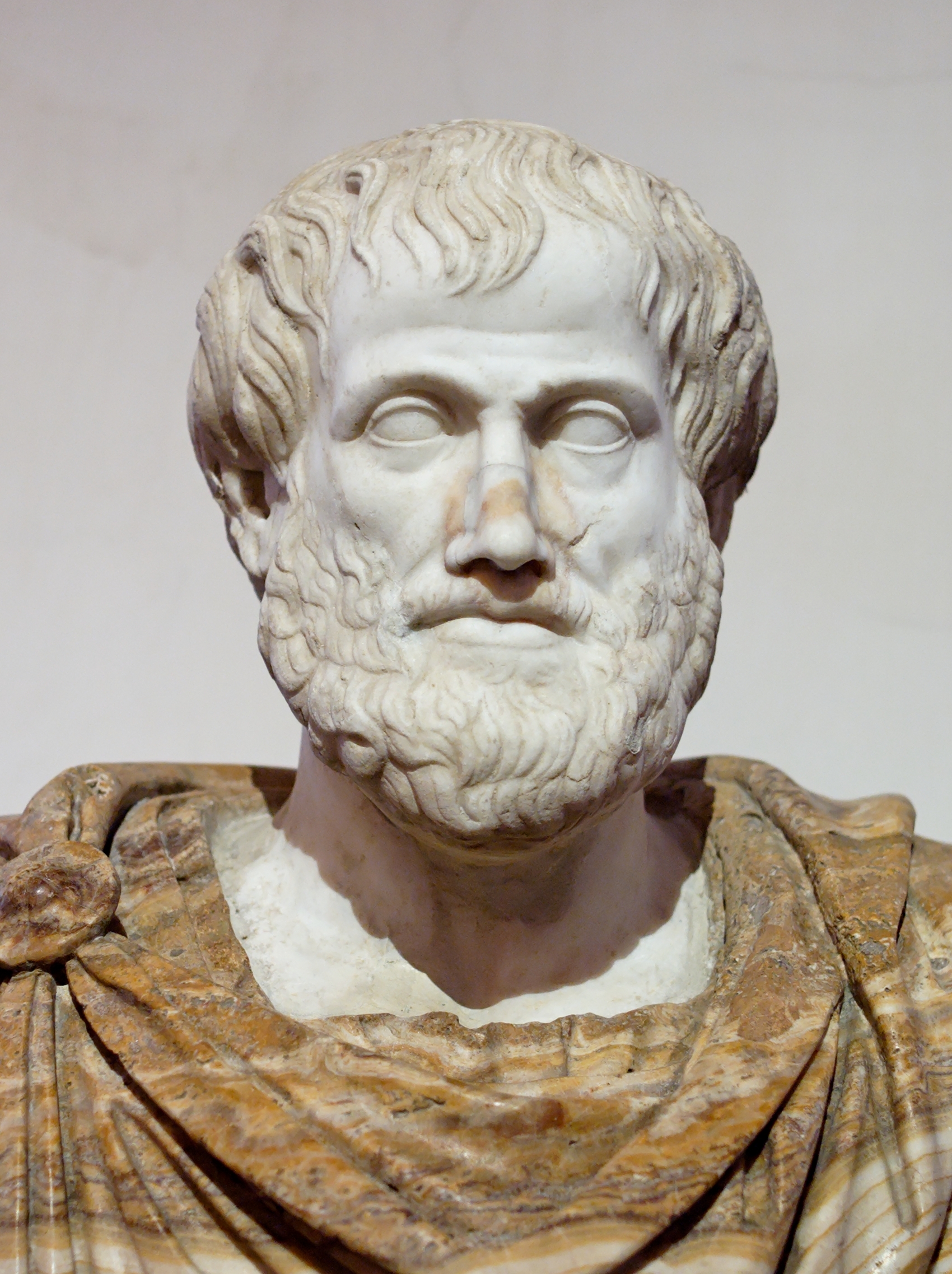Book I, 715b.15
Generation of Animals
Aristotle Quotes
Book I, 980a.21: Opening paragraph of Metaphysics
The first sentence is in the Oxford Dictionary of Scientific Quotations (2005), 21:10
Metaphysics
Variant: All men by nature desire knowledge.
Book III, Ch. IX, pp. 168-169.
Physics
Book I, 1099a.6
Nicomachean Ethics
Book II, Ch. VII, pp. 124-126.
Physics
Book VII, 1323b.1
Politics
Book III Ch. II as quoted by Florian Cajori (1899), as Aristotle's explanation of why bodies fall quicker in exact proportion to their weight.
On the Heavens
"The Letter of Aristotle to Alexander on the Policy toward the Cities", translated from Lettre d’Aristote à Alexandre sur la politique envers les cités, an Arabic text translated and edited by Józef Bielawski and Marian Plezia (1970), p. 72; translated from an ancient Greek text that survived only in Arabic translation, there is little acceptance that this is an authentic letter of Aristotle.
Disputed
Book II, Ch. I, p. 88.
Physics
“The law is reason unaffected by desire.”
Book III, 1287a.32
Politics
Variant: The Law is reason free from passion.
Book II, 1105b.9
Nicomachean Ethics
Book II, 1103b
Nicomachean Ethics
“The best friend is he that, when he wishes a person's good, wishes it for that person's own sake.”
Book IX, 1168b.1
Variants: My best friend is the man who in wishing me well wishes it for my sake.
The best friend is the man who in wishing me well wishes it for my sake.
Nicomachean Ethics
“Both oligarch and tyrant mistrust the people, and therefore deprive them of their arms.”
Book V, 1311a.11
Politics
“The good citizen need not of necessity possess the virtue which makes a good man.”
Book III, 1276b.34
Politics
Book II: On the soul; In: Aristotle (1808). Works, Vol. 4. p. 63 (412a-424b)
De Anima
“Change in all things is sweet.”
Book VII, 14
Remark: While this quote is known as Aristotle's, he did not propose it as his own saying, but as a citation from another author. The full text is: "But 'change in all things is sweet', as the poet says, because of some vice."
Nicomachean Ethics
Book I, 1101a.10
Nicomachean Ethics
Book II, 1389a.31
Rhetoric
Moreover, it has a beginning, a middle, and an end.
I. 1. as translated by William Whewell and as quoted by Florian Cajori, A History of Physics in its Elementary Branches (1899) as Aristotle's proof that the world is perfect.
On the Heavens
heart
Parva Naturalia 467b.13–16
Parts of Animals
Book XIII, 1078a.33
Metaphysics
Book V, 1303b.19-30
Politics
Book I, Part 25
Also known as Occam's razor or the principle of parsimony / economy (lex parsimoniae)
Richard McKeon (tr.) (1963), p. 150
Posterior Analytics
De Anima ii 1, 412b6–9: About the Mind–body problem
De Anima
Book I, Ch. VI, p. 57.
Physics
Book II, 1263b.15
Politics
Book I, 1094a.18
Nicomachean Ethics
“We must as second best, as people say, take the least of the evils.”
Book II, 1109a.34 (cf. Nicomachean Ethics, 1131b: ἔστι γὰρ τὸ ἔλαττον κακὸν μᾶλλον αἱρετὸν τοῦ μείζονος [the lesser of two evils is more desirable than the greater])
Nicomachean Ethics
Book III, Ch. VIII, p. 167.
Physics
Book II, Ch. I, pp. 93-94.
Physics
“That body is heavier than another which, in an equal bulk, moves downward quicker.”
IV. 1. as quoted by Florian Cajori (1899)
On the Heavens
Book V,1314b.39
Politics
Generation of Animals as translated by Arthur Leslie Peck (1943), p. 175
Generation of Animals
Book X, 1172a.17
Nicomachean Ethics
Book I, Ch. VI, pp. 53-55.
Physics
Book III, Ch. VIII, pp. 164-166.
Physics
Book III, Ch. IV, pp. 150-152.
Physics
Book VII, 1328b.4
Politics
A.1, 184a.16 sqq, source: http://classics.mit.edu//Aristotle/physics.html, Book I, Part 1, Tr. R. P. Hardie, R. K. Gaye.
Physics
Book III, Ch. VII, p. 162.
Physics
Metaphysics by Aristotle – Book 1, ClassicalWisdom.com
The second sentence is in Metaphysics A 2, 928<sup>b</sup> 17–20, Aristotle: Metaphysics Beta: Symposium Aristotelicum, Michel Crubellier & Andre´ Laks, eds. (Oxford University Press, 2009), p. 4.
Metaphysics
Variant: [And] one who experiences a difficulty and who feels wonder thinks that he does not understand..., so that, if it is to escape ignorance that they have practised philosophy, then it is clearly for the sake of knowing, and not for any practical purpose, that they have pursued understanding.
